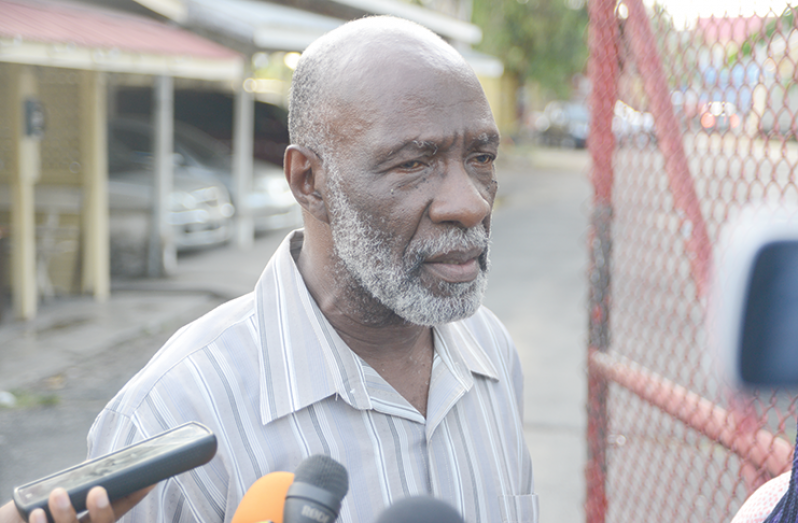THERE is further “contentious debate” within the Guyana Elections Commission (GECOM) on what should be done with the house-to-house data as the recent cross-matching report received from overseas is believed to be incorrect.
Coming out of the GECOM statutory meeting on Tuesday, Commissioner Sase Gunraj said that the cross-matching information received showed that some 60,000 forms did not “attract a hit,” meaning that they were names apart from the those on the National Register of Registrants Database (NRRD).
However, he then added: “On the face of it, one would want to suggest or assume that those are new persons; however, the chief elections officer has indicated to us that the secretariat went through a process where they interrogated and looked at that cross-matching report and they have found about 17,000-plus people who were not a hit or presumed to be new to be already on the database.”

The cross-matching of the 370,000 transactions from the house-to-house registration was conducted by an international digital security company, Gemalto. The decision has been made to contact the service provider. Gunraj said that the commission is unaware whether it is a mistake by the company and is therefore seeking clarity before moving forward.
However, there were questions about whether this could cause a delay as the Revised List of Electors (RLE) is expected to be published early in January 2020. Gunraj said that no such concern about a delay has arisen. “At this point, there has been no indication to us about the possibility of a delay, but a resolution of this in a timely manner will no doubt [lead] to the smooth running of the process,” he said.
Meanwhile, Commissioner Vincent Alexander said that GECOM must follow the normal process of conducting field work based on the information sent back by the cross-matching firm. He said that there were about 1,600 duplicates found from cross-matching between the Preliminary List of Electors (PLE) and the house-to-house data.
“We have to do field work, we have to investigate in the fields,” he said. “That investigation is on its way and that should take maybe two or three weeks. It seeks to ascertain the information in relation to the names that have come up as duplicates.”
Gunraj said that there is still contention amongst commissioners on how or whether the house-to-house data can be incorporated in the Revised List of Electors (RLE).
At a press conference earlier in the month, GECOM Chair Justice (Ret’d) Claudette Singh, was able to defend the commission’s decision to utilise the house-to-house data as lawful.
She referenced the August 2019 decisions of Chief Justice (ag) Roxane George-Wiltshire in a case challenging the constitutionality of the registration exercise in which she ruled that the Constitution and the Laws of Guyana provide for the conduct of house-to-house registration as a form of verification.
Therefore, the chair stated that she decided that every entry from the data, following cross- matching, would be posted for public scrutiny. Had the house-to-house exercise gone uninterrupted, the chair stated that there would have been no need for the verification process. However, she noted that she cut short the exercise because of the ruling that GECOM had no legal authority to remove names from the NRRD.




.jpg)










